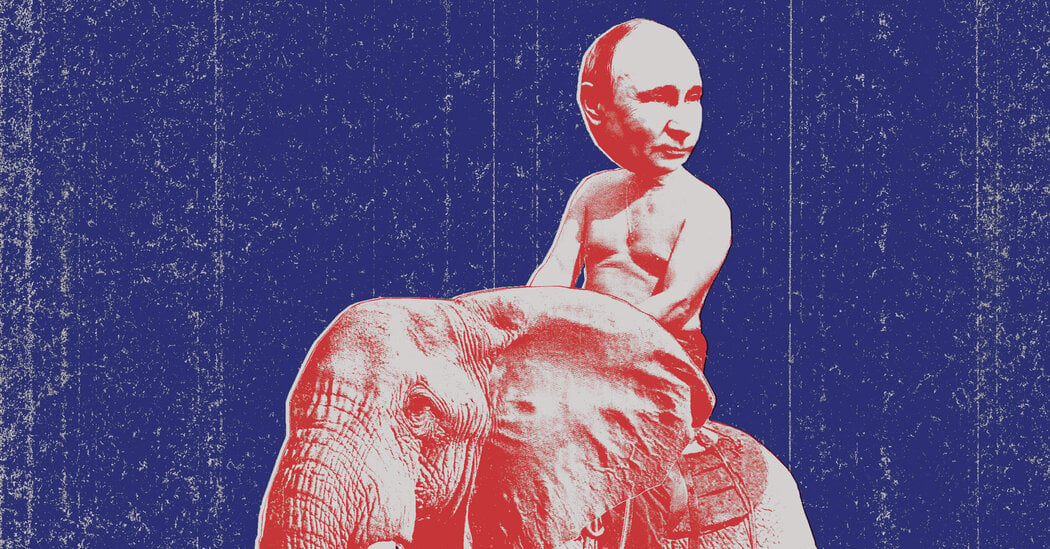As I type this newsletter, continued American aid for Ukraine is in grave doubt. Tucker Carlson is in Moscow to conduct a friendly interview with Vladimir Putin. And we’re receiving reports from the front lines that Russia is advancing, in part because of Ukrainian ammunition shortages. In short, the war is reaching a critical stage, and Ukraine may lose because Republicans are willing to hand authoritarian Russia a historic military victory rather than supply further aid to a democratic ally.
Ronald Reagan isn’t just rolling over in his grave; he may also lurch from it in a fit of incredulous rage. This is a remarkable and potentially catastrophic reversal by a political party that is in a state of near-total, frequently random ideological transformation.
To explain the intensity of Republican resistance to Ukraine aid, I need to return to a concept I wrote about in November: that of bespoke realities. My friend Renée DiResta, the technical research manager at the Stanford Internet Observatory, coined the term, and she wrote that it refers to the “bubble realities” constructed by communities “that operate with their own norms, media, trusted authorities and frameworks of facts.”
Among those who oppose aid to Ukraine, there are certainly several paleoconservatives who object on classic isolationist grounds: It’s not our fight, our support is costly, we might find ourselves inadvertently embroiled in war, and so on. But the mass Republican movement against Ukraine is rooted far less in policy than it is in a particular bespoke reality of the MAGA universe, in which Ukraine is a pernicious villain, Putin is a flawed hero and Russia should have crushed Ukraine long ago.
MAGA Republicans’ hatred and contempt for Volodymyr Zelensky and the Ukrainian cause is shockingly vehement. Candace Owens says she wants to “punch” Zelensky. Donald Trump Jr. calls him an “international welfare queen.” Carlson says he dresses “like the manager of a strip club.” It’s all bizarre and unreasonable. And it all fits the broader MAGA narrative.



i think the impressive growth in popularity of both bernie sanders and trump in the 2016 run-up to the election were born out of the same discontent that Americans started to feel towards the establishment wings of the two parties
zizek talks about this where the same people that supported Trump could have been ardent bernie supporters. Lots of areas in the Rust Belt that support unions could have been easily taken by a populist leftist candidate.
Unfortunately, as it so happens in history, whoever is willing to be more brutal typically wins. Trump is willing to do anything to win. Break the law, dip his toe into fascist rhetoric, extort and strongarm both his allies and enemies. He’s essentially going all-in - make it or break it.
Bernie simple doesn’t have the fire in him. He either doesn’t have the desire or the capability. That’s the issue - people who should be in power won’t be because they don’t want to dominate. People who shouldn’t end up taking over because of the inverse of that fact.
I’m getting a bit doomer, I think Trump is going to easily win this upcoming election unless the Dems can somehow get him in prison or he has a stroke. And I don’t think any of those 3 scenarios are going to be good for us as a country.